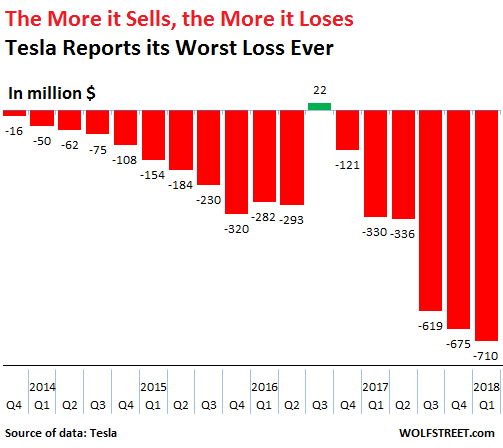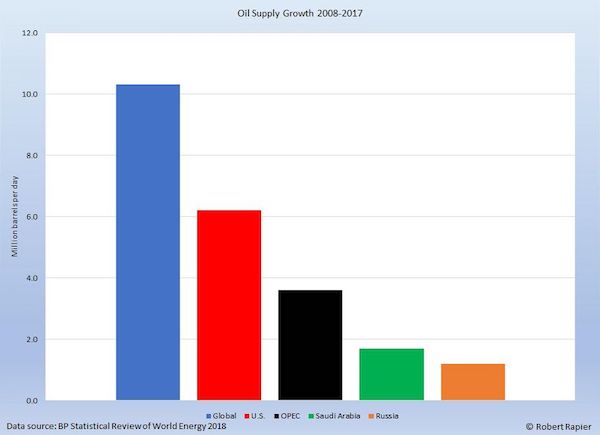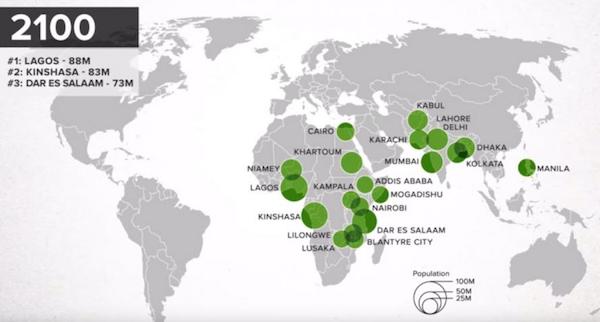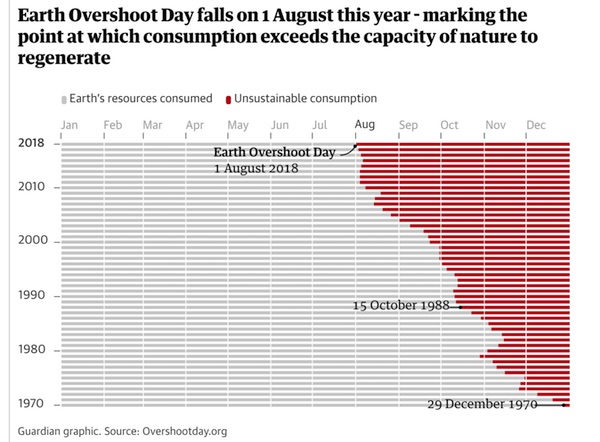
René Magritte Man in a bowler hat 1964

“Assange is, in short, the greatest journalist of our time..”
• Martyrs to the Cause: Carter Page and Julian Assange (Raimondo)
Assange was granted sanctuary due to Rafael Correa, then the President of Ecuador: unfortunately, Correa’s successor – one Lenin Moreno – has caved to pressure from the US and Britain, and it looks like Assange is going to be handed over to the British imminently. What happens next is anybody’s guess, but my own view is that there has indeed been a grand jury secretly deliberating his case, and charges will be made public: which means Assange will be sent to America, and to an uncertain fate. Uncertain due to the Supreme Court decision in the Pentagon Papers case, in which the Supremes ruled that the First Amendment protects journalists who report facts that may embarrass or otherwise inconvenience the government.
In other circumstances, and in an earlier era, his fate would not be uncertain, it would be sealed. After all, WikiLeaks has revealed more US government secrets than any single individual or state adversary in history. One after another the revelations came – a US helicopter gunship gunning down Iraqi civilians, the entire secret diplomatic history of the US, complete with original documents and references, the methodology of hi-tech US surveillance on ordinary Americans, and the list goes on and on. Assange is, in short, the greatest journalist of our time – and so naturally the rest of the profession hates his guts, and is calling for his head.
The reasons for this should be clear enough: the Russia-gate mythology, a matter of faith for the Fourth Estate, characterizes Assange as one of its chief demons. He is, in their fake-expert phraseology, a Russian “asset,” Putin’s puppet, who deprived Hillary Clinton of her rightful due and “stole” the 2016 presidential election on behalf of Donald Trump.

Since the narrative is not based on any evidence whatsoever, we can simply turn it upside down.
• British Assassination Campaign Targeting Russian Exiles? (SCF)
For its part, the Russian government has always categorically denied any involvement in the ill-fate of nationals living in exile in Britain. On the Skripal case, Moscow has pointed out that the British authorities have not produced any independently verifiable evidence against the Kremlin. Russian requests for access to the investigation file have been rejected by the British. On the Litvinenko case, Russia has said that the official British inquiry was conducted without due process of transparency, or Russia being allowed to defend itself. It was more trial by media. A common denominator is that the British have operated on a presumption of guilt. The “proof” is largely at the level of allegation or innuendo of Russian malfeasance.
But let’s turn the premise of the argument around. What if the British state were the ones conducting a campaign of assassination against Russian émigrés, with the cold-blooded objective of using those deaths as a propaganda campaign to blacken and criminalize Russia? In a recent British media interview Russia’s Foreign Minister Sergei Lavrov was typically harangued over alleged Russian malign activity in Britain. Lavrov rightly turned the question around, and said that the Russian authorities are the ones who are entitled to demand an explanation from the British state on why so many of its nationals have met untimely deaths. The presumption of guilt against Russia is based on a premise of Russophobia, which prevents an open-minded inquiry.
If an open mind is permitted, then surely a more pertinent position is to ask the British authorities to explain the high number of deaths in their jurisdiction. As ever, the litmus-test question is: who gains from the deaths? In the case of the alleged attempted assassination of Sergei Skripal and his daughter, would Russia risk such a bizarre plot against an exile who had been living in Britain undisturbed for 10 years? Or would Britain gain much more from smearing Moscow at the time of President Putin’s re-election in March, and in the run-up to the World Cup?
The more recent alleged nerve-agent poisoning of two British citizens – Charlie Rowley and Dawn Sturgess – in the southern English town of Amesbury revived official anti-Russia accusations and public fears over the earlier Skripal incident in nearby Salisbury. The Amesbury incident in early July occurred just as a successful World Cup tournament in Russia was underway. It also came ahead of US President Donald Trump’s landmark summit with Vladimir Putin in Helsinki. Again, who stands to gain most from these provocative events? Russia or Britain?

This is how it should be done.
• The Burden Of Proof Is On The Russiagaters (CJ)
As we’ve discussed previously, in a post-Iraq invasion world the confident-sounding assertions of spies, government officials and media pundits is not sufficient evidence for the public to rationally support claims that are being used to escalate dangerous cold war tensions with a nuclear superpower. The western empire has every motive in the world to lie about the behaviors of a noncompliant government, and has an extensive and well-documented history of doing exactly that. Hard, verifiable, publicly available proof is required. Assertions are not evidence.
But even if there wasn’t an extensive and recent history of disastrous US-led escalations premised on lies advanced by spies, government officials and media pundits, the burden of proof would still be on those making the claim, because that’s how logic works. Whether you’re talking about law, philosophy or debate, the burden of proof is always on the party making the claim. A group of spies, government officials and media pundits saying that something happened in an assertive tone of voice is not the same thing as proof. That side of the Russiagate debate is the side making the claim, so the burden of proof is on them. Until proof is made publicly available, there is no logical reason for the public to accept the CIA/CNN Russia narrative as fact, because the burden of proof has not been met.
[..] There are many Russiagate skeptics who have been doing copious amounts of research to come up with other theories about what could have happened in 2016, and that’s fine. But in a way this can actually make the debate more confused, because instead of leaning back and insisting that the burden of proof be met, you are leaning in and trying to convince everyone of your alternative theory. Russiagaters love this more than anything, because you’ve shifted the burden of proof for them. Now you’re the one making the claims, so they can lean back and come up with reasons to be skeptical of your argument.

“I think that the thinking class in the United States has literally lost its mind.”
• Russian Hysteria An Exercise In PsyOps (Kunstler)
The media over the last few years has indulged in wild speculation around U.S.-Russian relations. And as seen, the run up to this weeks meeting at Helsinki between the leaders of the two nations has been no different. James believes the ongoing Russia investigation, the election of Donald Trump and the defeat of Hillary Clinton has made a certain class of people in the U.S. irrational. “I think that the thinking class in the United States has literally lost its mind. Donald Trump’s persona is so odious that it’s just driven them mad and he’s like a giant splinter in the eye of the thinking class.”
A registered Democrat, Kunstler doesn’t believe that the Russians interfered in the U.S. election in any meaningful way. And any efforts to punish or antagonize them are crazy and dangerous. The ongoing expansion of NATO, playing war games at Russia’s borders and the destabilizing of Ukraine has consolidated bad relations with Russia stretching back to the Cold War. History repeats itself tragically when the thinking classes of powerful nations start to behave extremely irrationally. “Doing anything to interfere with trade and erect barriers and put up tariffs might be a dangerous thing to do,” says Kunstler.

Boy, what a story.
• Liquidity Crisis: Tesla Asks Suppliers For “Cash Back” (ZH)
According to a memo seen by The Wall Street Journal that was sent to a supplier last week, Tesla said it is asking its suppliers for cash back to, drumroll, help it become profitable, as if that is somehow the priority of the company’s suppliers. And we are not talking about a few cents here and there: Tesla requested the supplier return what it calls a meaningful amount of money of its payments since 2016. But wait, it gets better: the memo which was sent by a global supply manager (who will probably be fired shortly), described the request as “essential to Tesla’s continued operation” and characterized it as an investment in the car company to continue the long-term growth between both players.
In other words, Tesla has given its vendors an ultimatum: give us a haircut, or else we won’t survive, and not only is your business with us over, but all those billions in payables we owe you, well, good luck with the other pre-petition claims in bankruptcy court. Or as one Tesla skeptic noted on twitter: “TSLA has been cranking out cars 24/7 at 2-3x the rate they can deliver them, turning supplier parts on credit into finished goods. Then they turn around and “ask” for a cash back so they don’t default on said suppliers. Y’all just got played.” For those wondering how much money Tesla owes its suppliers, or “ransom” as it is now better known, the answer is $2.6 billion and rising exponentially.

As the WSJ further adds, “while Tesla said in the memo that all suppliers were being asked to help it become profitable, it is unclear how many were asked for a discount on contracted spending amounts retroactively.” While Tesla did not comment on the memo, it spun the situation as standard industry practice (it isn’t) confirming it is seeking price reductions from suppliers for projects, some of which date back to 2016, and some of which final acceptance many not yet have occurred. The company called such requests a standard part of procurement negotiations to improve its competitive advantage, especially as it ramps up Model 3 production. Odd that Tesla did not consider all these aspects of its business when it signed contracts which laid out, very clearly, what its obligations were.

Why still austerity in Greece?
• Portugal Dared to Cast Aside Austerity. It’s Having a Major Revival.
Ramón Rivera had barely gotten his olive oil business started in the sun-swept Algarve region of Portugal when Europe’s debt crisis struck. The economy crumbled, wages were cut, and unemployment doubled. The government in Lisbon had to accept a humiliating international bailout. But as the misery deepened, Portugal took a daring stand: In 2015, it cast aside the austerity measures its European creditors had imposed, igniting a virtuous cycle that put its economy back on a path to growth. The country reversed cuts to wages, pensions and social security, and offered incentives to businesses. The government’s U-turn, and willingness to spend, had a powerful effect. Creditors railed against the move, but the gloom that had gripped the nation through years of belt-tightening began to lift. Business confidence rebounded. Production and exports began to take off — including at Mr. Rivera’s olive groves.
“We had faith that Portugal would come out of the crisis,” said Mr. Rivera, the general manager of Elaia. The company focused on state-of-the-art harvesting technology, and it is now one of Portugal’s biggest olive oil producers. “We saw that this was the best place in the world to invest.” At a time of mounting uncertainty in Europe, Portugal has defied critics who have insisted on austerity as the answer to the Continent’s economic and financial crisis. While countries from Greece to Ireland — and for a stretch, Portugal itself — toed the line, Lisbon resisted, helping to stoke a revival that drove economic growth last year to its highest level in a decade. The renewal is visible just about everywhere. Hotels, restaurants and shops have opened in droves, fueled by a tourism surge that has helped cut unemployment in half.
In the Beato district of Lisbon, a mega-campus for start-ups rises from the rubble of a derelict military factory. Bosch, Google and Mercedes-Benz recently opened offices and digital research centers here, collectively employing thousands. Foreign investment in aerospace, construction and other sectors is at a record high. And traditional Portuguese industries, including textiles and paper mills, are putting money into innovation, driving a boom in exports. “What happened in Portugal shows that too much austerity deepens a recession, and creates a vicious circle,” Prime Minister António Costa said in an interview. “We devised an alternative to austerity, focusing on higher growth, and more and better jobs.”

How long for?
• How The Fracking Revolution Broke OPEC’s Hold On Oil Prices (Rapier)
A decade ago, in the summer of 2008, the price of West Texas Intermediate (WTI) crude was racing toward $150 a barrel. Over the previous three years, and despite strong demand growth, the world had only increased oil production by 1.2 million BPD, and it essentially all came from OPEC. Many analysts, including me, were extremely concerned about the future hold OPEC would maintain over the world’s oil supplies. It appeared that there would an enormous transfer of wealth from those countries dependent upon oil imports – like the United States – to OPEC countries. In many cases, these countries have interests that are hostile to those of the U.S., so this was very much an issue of national security.
But the future played out differently than it seemed it would in the summer of 2008. Unbeknownst to most people, oil producers were experimenting with a marriage between two established oil drilling technologies — horizontal drilling and hydraulic fracturing. The success of this marriage would unlock oil in tight oil and shale oil deposits that had previously been too expensive to recover, and would result in one of the greatest oil booms the world had ever seen. In fact, the “fracking revolution” caused U.S. oil production to turn upward in 2009, and then rise over the next seven years at the fastest rate in U.S. history.
While it is still true that OPEC still produced 42.6% of the world’s oil in 2017, the majority of new oil production since 2008 has come from the U.S. Of the 10.3 million BPD of new oil production since 2008, the U.S. supplied 6.2 million BPD (60%). The world’s two other major oil-producing countries, Saudi Arabia and Russia, saw their production increase by 1.7 million BPD and 1.2 million BPD respectively since 2008. OPEC overall increased its production by 3.6 million BPD since 2008, primarily as a result of production growth in Saudi Arabia, Iraq, and Iran. But OPEC’s gains were limited by production declines in Venezuela, Libya, and Nigeria. There were also regional production declines in Europe, Asia, Africa, and South and Central America.


What happens if you use cheap credit to make your zombie economy look alive.
• Less Than 20% Of US Apartments Affordable For Middle-Income Black Renters (MW)
Millions of Americans rent because they can’t afford to buy. And many of those people struggle to pay the rent, new research suggests, more so if they are African-American or Hispanic. A renter who earned $39,647 per year, the median black household income in the U.S., could afford just 16.2% of rentals available on Zillow if they kept their housing costs below 30% of their pretax income, according to a new analysis from the real-estate company. Hispanic renters fared somewhat better: Those who earned the median household income could afford 27.3% of rentals before they risked spending more than a third of their pretax income on housing.
Spending 30% of your gross income on rent is the traditional measure of affordability used by many real-estate experts. Comparatively, white renters who earned the median household income for their demographic could afford 49.7% of rentals, while Asian renters could afford 67.4%. “Perhaps more so than any other factor, income determines where and how we live in the United States today,” said Zillow senior economist Aaron Terrazas in the report. “Income disparities across racial and ethnic groups in the United States have remained stubbornly persistent and, as a result, black and Hispanic families encounter far fewer affordable rental options than white and Asian families,” he said.

More tariffs?
• China Probes Stainless Steel Imports From Indonesia, EU, Japan And Korea (R.)
China on Monday launched an anti-dumping probe into stainless steel imports worth $1.3 billion, including from a privately owned Chinese mill with operations offshore, after complaints that a flood of product has damaged the local industry. The Commerce Ministry said on Monday the investigation will target imports of stainless steel billet and hot-rolled stainless steel sheet and plate from the European Union, Japan, South Korea and Indonesia, which nearly tripled last year. The move follows a complaint by Shanxi Taigang Stainless Steel with backing from four other state-owned mills including Baosteel’s stainless steel division, which blamed cheap imports on falling prices, it said.
China makes and consumes around half of the world’s stainless steel, which is used to protect against corrosion in buildings, transportation and packaging. While the complaint targets eight foreign producers, it also lists a number Chinese companies, including the Indonesian unit of one of the world’s top producers, Tsingshan Stainless Steel, and 19 traders who import product. Some private Chinese companies have opened or started building plants in Indonesia in recent years, drawing on its plentiful nickel resources and lower-cost of production. A significant portion of the new production has been sold in China, analysts say.

At least a little scary.
• The World’s Largest Megacities By 2100 (ZH/VC)
Throughout the course of human history, the biggest cities have always seemed impossibly large. For many millennia, it was almost unfathomable for a city to sustain more than 1 million residents. In fact, as Visual Capitalist’s Jeff Desjardins notes, it wasn’t until the 19th century that the largest cities globally, such as London and Beijing, were able to consistently hold populations beyond that impressive mark. Despite this, in the modern era, we’ve quickly discovered that a city of 1 million people isn’t remarkable at all. In China alone, there are now over 100 cities with a million people today – and as such, our mental benchmark for what we consider to be a “big city” has changed considerably from past times.
Just like a city the size of modern Tokyo was hard to imagine for someone living in the 19th century, it can be an extremely difficult thought experiment for us to visualize what future megacities will look like. Researchers at the Global Cities Institute have crunched the numbers to provide us with one view of the potential megacities of the future, extrapolating a variety of factors to project a list of the 101 largest cities in the years 2010, 2025, 2050, 2075, and 2100.


The Overshoot theme is shaky, but not fully devoid of meaning.
• Earth’s Resources Consumed In Ever Greater Destructive Volumes (G.)
Humanity is devouring our planet’s resources in increasingly destructive volumes, according to a new study that reveals we have consumed a year’s worth of carbon, food, water, fibre, land and timber in a record 212 days. As a result, the Earth Overshoot Day – which marks the point at which consumption exceeds the capacity of nature to regenerate – has moved forward two days to 1 August, the earliest date ever recorded. To maintain our current appetite for resources, we would need the equivalent of 1.7 Earths, according to Global Footprint Network, an international research organisation that makes an annual assessment of how far humankind is falling into ecological debt.
The overshoot began in the 1970s, when rising populations and increasing average demands pushed consumption beyond a sustainable level. Since then, the day at which humanity has busted its annual planetary budget has moved forward. Thirty years ago, the overshoot was on 15 October. Twenty years ago, 30 September. Ten years ago, 15 August. There was a brief slowdown, but the pace has picked back up in the past two years. On current trends, next year could mark the first time, the planet’s budget is busted in July. While ever greater food production, mineral extraction, forest clearance and fossil-fuel burning bring short-term (and unequally distributed) lifestyle gains, the long-term consequences are increasingly apparent in terms of soil erosion, water shortages and climate disruption.


Record highs everywhere.
• Crop Failure And Bankruptcy Threaten Farmers As Drought Grips Europe (G.)
Farmers across northern and central Europe are facing crop failure and bankruptcy as one of the most intense regional droughts in recent memory strengthens its grip. States of emergency have been declared in Latvia and Lithuania, while the sun continues to bake Swedish fields that have received only 12% of their normal rainfall. The abnormally hot temperatures – which have topped 30C in the Arctic Circle – are in line with climate change trends, according to the World Meteorological Organization. And as about 50 wildfires rage across Sweden, no respite from the heatwave is yet in sight. Lennart Nilsson, a 55-year-old cattle farmer from Falkenberg near Malmo and co-chair of the Swedish Farmers Association, said it was the worst drought he had experienced.
“This is really serious,” he said. “Most of south-west Sweden hasn’t had rain since the first days of May. A very early harvest has started but yields seem to be the lowest for 25 years – 50% lower, or more in some cases – and it is causing severe losses.” If no rain comes soon, Nilsson’s association estimates agricultural losses of up to 8bn Swedish kronor (£700m) this year and widespread bankruptcies. The drought would personally cost him around 500,000 kronor (£43,000), Nilsson said, adding that, like most farmers, he is now operating at a loss. The picture is little different in the Netherlands, where Iris Bouwers, a 25-year-old farmer, said the parched summer had been a “catastrophe” for her farm.
“Older families around me are comparing this to 1976,” she said. “My dad can’t remember any drought like this.” The Bouwerses expect to lose €100,000 this year after a 30% drop in their potato crop. After investing in a pig stable over the winter, the family have no savings to cover the loss. Asked what she would do, Bouwers just laughed. “Hope and pray,” she said. “There is not much more I can do. I wouldn’t talk about bankruptcy yet, but our deficit will be substantial. It probably means we need to have a very good talk with the bank.”








